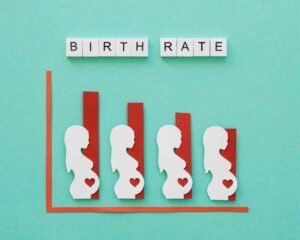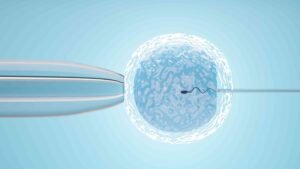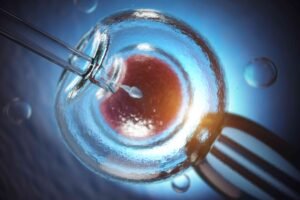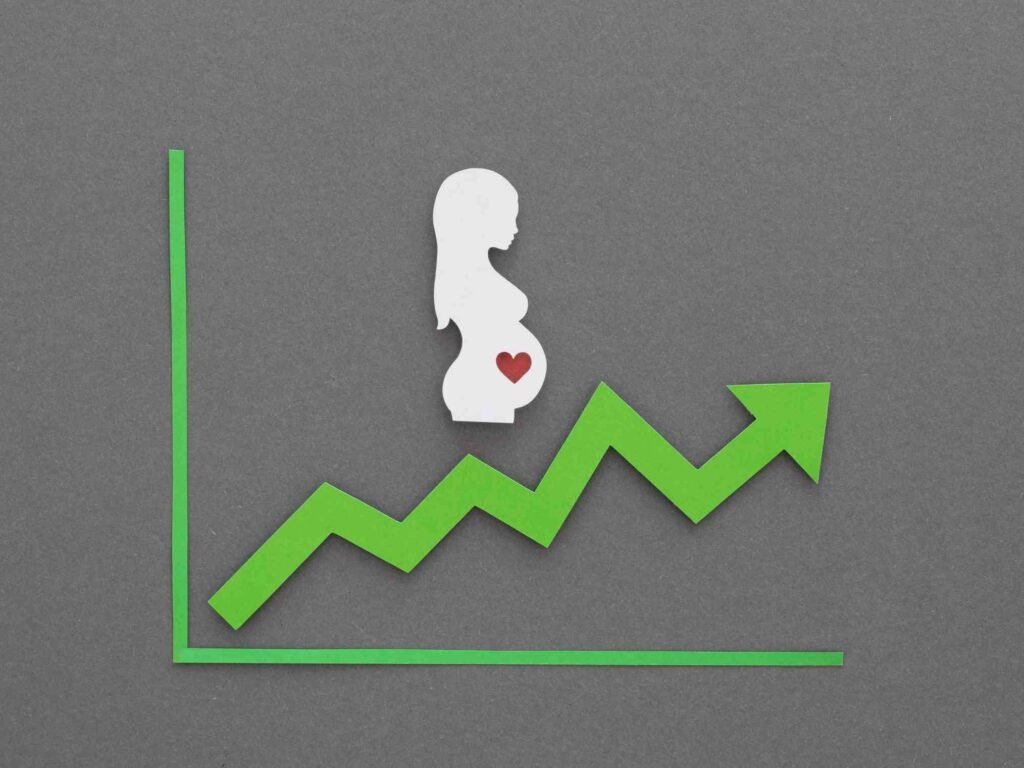What Affects IVF Success Rates? – Age, Health, & More
In-vitro fertilization (IVF) has become a beacon of hope for millions of people worldwide struggling with infertility. It’s a process that blends science, patience, and emotion—offering the possibility of parenthood when traditional methods haven’t worked. But while IVF has opened many doors, it isn’t always a guaranteed success.
So, what affects IVF success rates? That’s a question with layers. From age and health to clinic quality and lifestyle, several variables come into play. If you’re considering IVF or are already in the process, understanding these factors can help you make more informed decisions—and maybe even boost your odds of success.

What Affects IVF Success Rates the Most?
To truly get a grip on what affects IVF success rates, you have to look at the process holistically. It’s not just about a single aspect like egg quality or sperm count. It’s the entire picture—including biological, environmental, and procedural components.
Some of the most significant factors include:
- Age (especially of the woman)
- Overall reproductive health
- Lifestyle and habits
- Underlying medical conditions
- Embryo quality
- Clinic technology and expertise
- Number of IVF cycles attempted
Age: The Most Influential Factor
Age, particularly the woman’s age, is often the single most important factor when it comes to IVF success. That’s because female fertility declines with age—both in terms of egg quantity and quality.
- Under 35: Women in this age bracket typically have the highest success rates. IVF success can range between 40-50% per cycle.
- 35 to 37: Rates drop slightly, averaging 30-40%.
- 38 to 40: Success falls further to around 20-30%.
- Over 40: It declines sharply—often below 10%, especially with its own eggs.

Eggs age just like any other part of the body. As women get older, their eggs are more likely to have chromosomal abnormalities, which reduces fertilization chances and increases the risk of miscarriage.
So, if you’re wondering what affects IVF success rates most drastically, age is right at the top of the list.
Egg and Sperm Quality Matter
You need two things to make an embryo—an egg and a sperm. The health of both is crucial. Poor egg or sperm quality can lead to embryos that fail to implant or develop correctly.
- Egg Quality: Diminishes with age, but can also be affected by things like endometriosis, autoimmune disorders, or chemotherapy.
- Sperm Quality: Motility, count, and morphology all matter. Issues with sperm can stem from genetics, lifestyle, or environmental toxins.
Often, couples assume if the woman is healthy, the odds are good. But male fertility plays a major role too. In fact, about 40-50% of infertility cases involve male factors.
Reproductive Health and Medical History
Another big piece of the puzzle when evaluating what affects IVF success rates is the individual’s reproductive health history.
For women, this might include:
- Polycystic ovary syndrome (PCOS): Can lead to irregular cycles and immature eggs.
- Endometriosis: Affects the lining of the uterus and can impair implantation.
- Blocked fallopian tubes: Even though IVF bypasses the tubes, inflammation or infection can still impact uterine conditions.
- Fibroids or uterine abnormalities: Can interfere with embryo implantation.

For men, conditions like varicocele, infections, or hormonal imbalances can impact sperm production and quality.
The takeaway? Always get a full fertility work-up. Understanding underlying issues is crucial to navigating IVF more effectively.
Lifestyle Choices: Often Overlooked, Always Important
Here’s something many people underestimate: your daily habits can significantly impact your fertility.
- Smoking: Decreases egg and sperm quality. It can also affect hormone levels and increase miscarriage risk.
- Alcohol: Moderate to heavy consumption has been linked to lower IVF success rates.
- Caffeine: Excessive caffeine might interfere with conception, though small amounts are generally fine.
- Diet and Exercise: Being underweight or overweight can disrupt hormone balance. A nutrient-rich, balanced diet supports hormone production and egg health.
- Stress: While not always measurable, chronic stress is believed to impact fertility hormones and even embryo implantation.
When thinking about what affects IVF success rates, don’t forget the everyday choices you’re making—they matter more than you might think.
Embryo Quality and Genetic Testing
Embryo quality plays a massive role in whether IVF leads to pregnancy. But even perfect-looking embryos under a microscope can carry genetic abnormalities.
That’s where Preimplantation Genetic Testing (PGT) comes in. PGT helps identify embryos with the correct number of chromosomes, increasing the odds of successful implantation and reducing the risk of miscarriage.
However, embryo quality is directly influenced by egg and sperm quality. If either is compromised, even PGT can’t fully make up for it.
So again, the underlying biology circles back to what affects IVF success rates at the core—your body’s natural resources.
Number of IVF Cycles Attempted
IVF often isn’t a one-and-done process. While some couples get lucky on the first try, many require multiple cycles to succeed.
According to statistics:
- 1st cycle: About 30% chance of success
- 2-3 cycles: Increases cumulative success to about 50-60%
- 4+ cycles: Cumulative success can go up to 70-80%, depending on age and health
This doesn’t mean more is always better, but it shows persistence can pay off—especially if you and your clinic are learning and adjusting after each cycle.

The Role of the Fertility Clinic
You might not realize it, but the clinic you choose can significantly impact your results.
What to look for in a fertility clinic:
- Success rates (especially for your age group)
- Types of treatments offered
- Lab quality and embryologist experience
- Reviews and patient experiences
- Accreditation and certifications
Some clinics specialize in treating older patients or those with specific conditions. Finding a clinic that aligns with your needs is a key part of addressing what affects IVF success rates from a practical standpoint.
The Type of IVF Protocol Used
Did you know there are different types of IVF protocols?
Some common ones include:
- Long protocol: Suppresses natural hormones before stimulating the ovaries. Often used for women with regular cycles.
- Antagonist protocol: Quicker, with fewer side effects. A good option for women at risk of ovarian hyperstimulation syndrome (OHSS).
- Natural cycle IVF: No stimulating drugs, retrieves the single egg you naturally produce. Lower cost, but lower chances.
- Mini IVF: Uses minimal stimulation, aiming for fewer but high-quality eggs.
The best protocol for you depends on your hormone levels, ovarian reserve, age, and previous IVF response.
Choosing the right protocol is a crucial piece of the puzzle in what affects IVF success rates—and it’s something your doctor should personalize based on your profile.

Emotional and Mental Health
IVF can be emotionally draining. The hormones, the waiting, the setbacks—it’s a rollercoaster.
While mental health doesn’t directly impact egg fertilization or embryo quality, it can affect everything else—your motivation, your lifestyle choices, your relationship with your partner, and your commitment to continuing treatment.
Many clinics now offer counseling or support groups, which can help you manage stress and avoid burnout.
A calm, supported mindset might not be a magic ingredient, but it certainly contributes to your overall fertility journey—and by extension, influences what affects IVF success rates in a broader sense.

Final Thoughts:
When people ask what affects IVF success rates, they’re usually hoping for one clear answer. But the truth is, success depends on a mix of factors: biological, technical, emotional, and even financial.
While age remains the strongest predictor, it’s far from the only one. Egg and sperm quality, lifestyle choices, underlying health conditions, and even your clinic’s lab can all tip the scales.
So, if you’re on this path—or thinking about it—take a step back. Ask the right questions. Surround yourself with a good team. And most importantly, give yourself grace. The journey isn’t easy, but with the right knowledge and support, it becomes a little more manageable—and a lot more hopeful.


